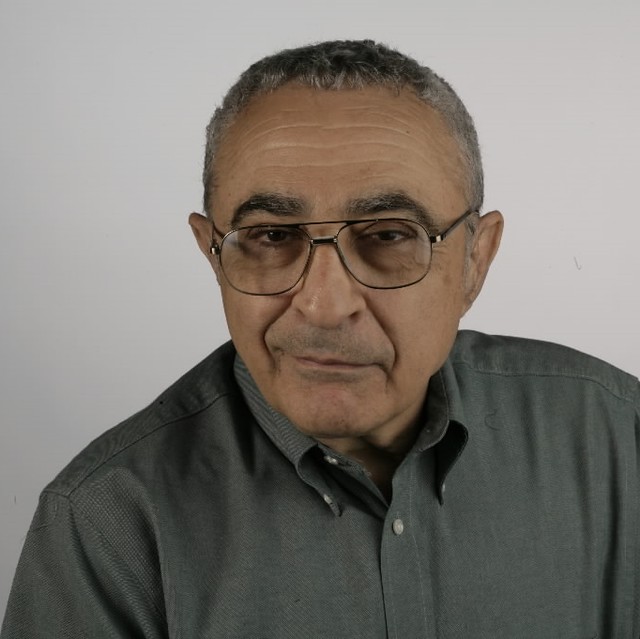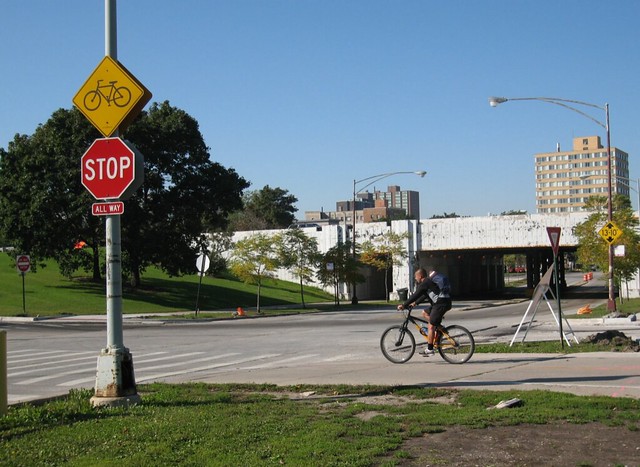After Anastasia Kondrasheva, 23, was fatally struck on her bicycle by a right-turning truck driver in Roscoe Village on September 26, the Tribune ran an editorial noting that this tragedy should remind motorists to watch out for bikes on the road. This reflects the paper’s evolving coverage of traffic safety issues, which has generally improved during the last year.
However, the Tribune continues to run irresponsible “bikelash” opinion pieces from time to time. For example, in early September the paper ran an op-ed by DePaul communications teacher John McCarron in which he suggested that drivers shouldn’t be required to check for cyclists before making right turns.
The timing of the latest of the Trib’s latest anti-bike screed is especially poor. Four days after Kondrasheva’s death, and a week after Danielle Palagi, 26, was struck on her bike by another trucker near the Illinois Medical Campus, leading to the amputation of her foot, the paper ran an op-ed by Ron Grossman that portrayed bicyclists as a safety menace.
It’s not the first time Grossman has written an ill-informed bikelash article for the Tribune. Two years ago he proposed periodically giving pedestrians a holiday from the perceived bike threat by closing Chicago streets to cyclists. What would a day without bikes actually be like? It would be even louder, more congested, and more dangerous than a typical day.
In last Friday’s article Grossman called for a police crackdown on lawbreaking cyclists. “I live around the corner from Wells Street, with its heavily traveled bike lanes,” he writes. “Yet I've never seen a cop pull over a bicyclist who pedaled right through a nearby stop sign, and there are plenty. I've yet to see a biker ticketed for running a red light, a common sight anywhere in Chicago.”
Of course, Chicago drivers also do their fair share of running stop signs and blowing stoplights. The difference is, when you do these things while piloting a 3,000-pound vehicle, rather than a thirty-pound one, it’s easy to kill other people. That’s one reason why local police officers usually don’t view ticketing relatively harmless behavior by cyclists as a worthwhile use of their time.
It’s somewhat understandable that Grossman has a vendetta against bicyclists. He says a person on a bike nearly struck him while he was crossing Lincoln Avenue with the walk signal. Cyclists who run reds in such a way that requires others to stop in their tracks or slam on the brakes to avoid a crash are being reckless and deserve to be fined.
But while people are capable of acting like jerks regardless of travel mode, that kind of dangerous behavior by cyclists is relatively rare. Most likely, Grossman is annoyed by bike riders who treat stop signs like yield signs, and stoplights like stop signs.
While this strategy doesn’t follow the letter of the law, it’s widespread. That’s because people who are powering their own vehicles don’t want to waste momentum by coming to a dead stop at every intersection or waste time waiting for a red light to change when there’s no cross traffic.
We can debate whether this kind of technically illegal behavior is ethical. But when it’s done on a slower, lightweight vehicle with 360-degree visibility, it’s not dangerous.
That’s why, as an op-ed by Tom Babin yesterday in the Los Angeles Times pointed out, it’s lawful for bicyclists in Idaho to treat a stop sign like a yield, a move known as an “Idaho stop.” Recently it became legal for Parisian cyclists to treat some stoplights like stop signs. In the future it might make sense for Illinois or Chicago to legalize the Idaho stop, just as U.S. cities like San Francisco have considered doing.
In the meantime the Tribune should stop wasting ink on calls for a crackdown on relatively innocuous behavior by Chicago cyclists. Instead, the paper should run more articles focusing on the real traffic safety threat: the kind of dangerous driving that permanently disabled Danielle Palagi and took the life of Anastasia Kondrasheva.





